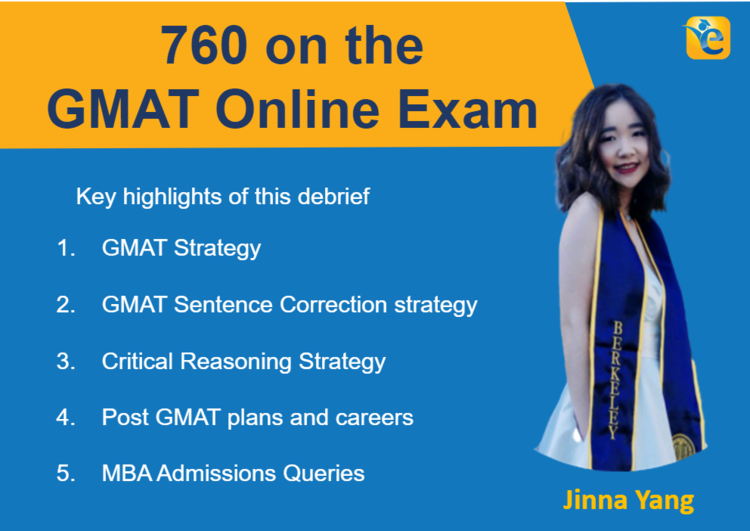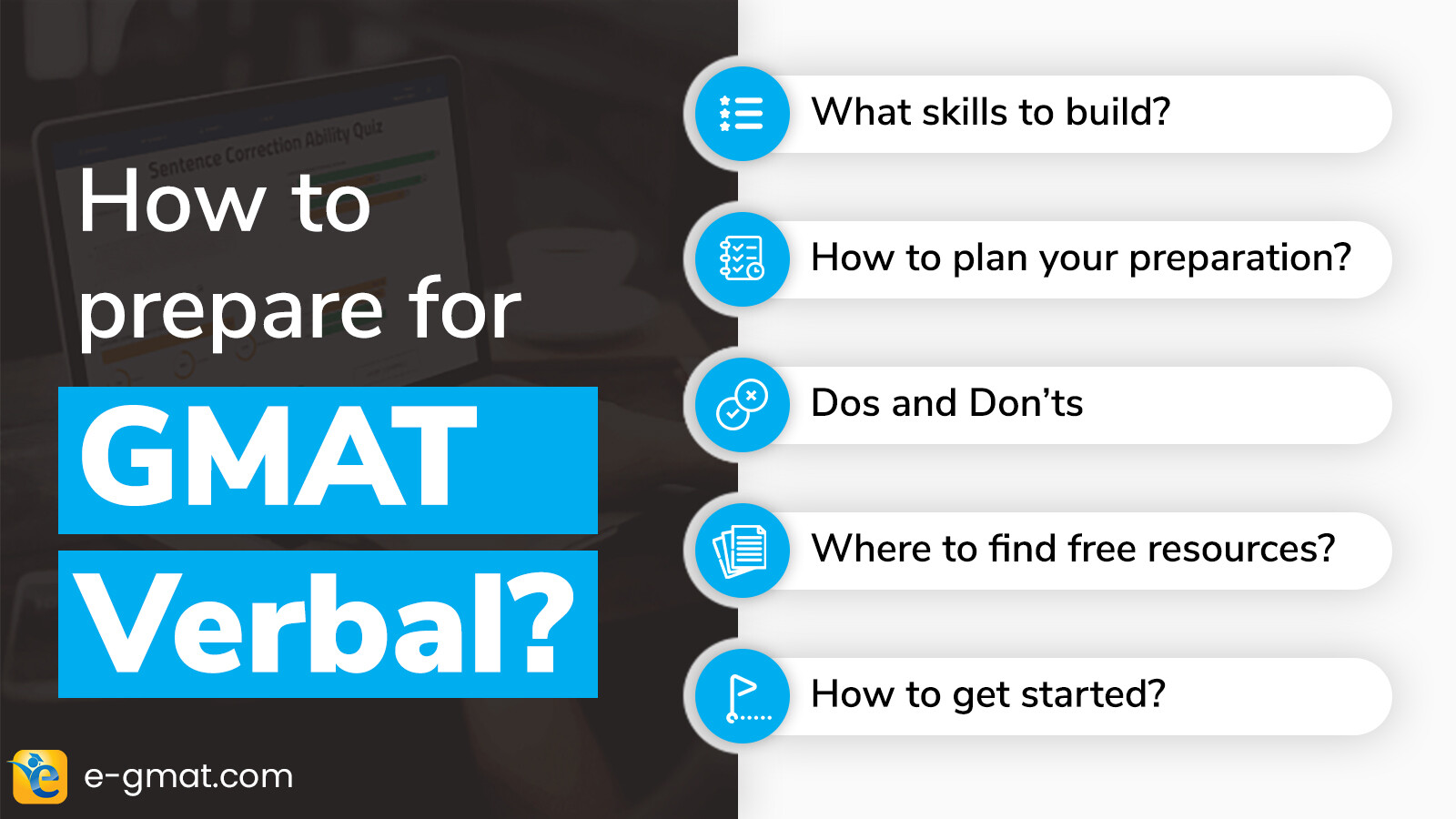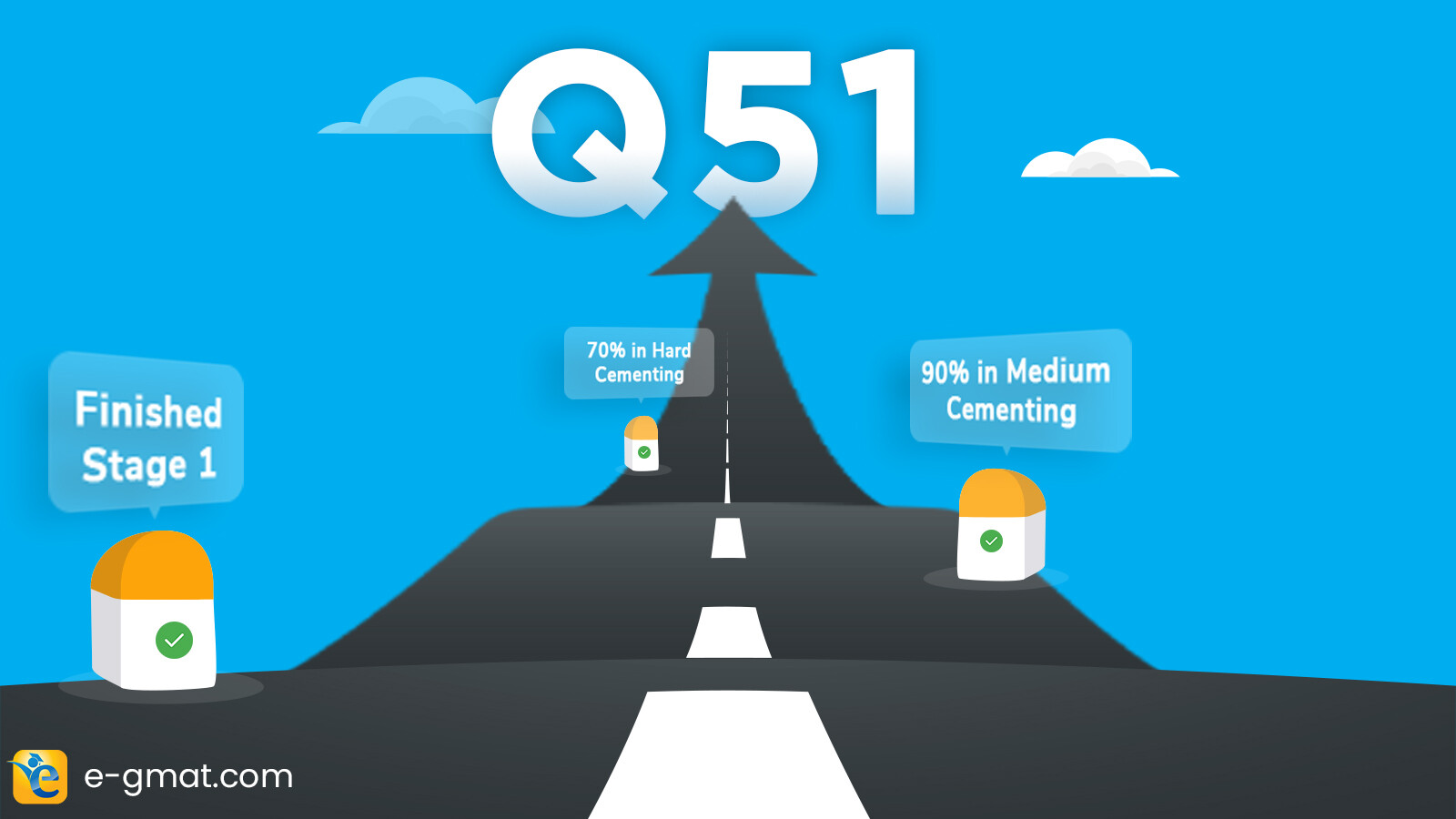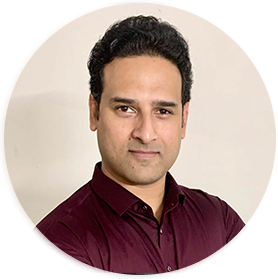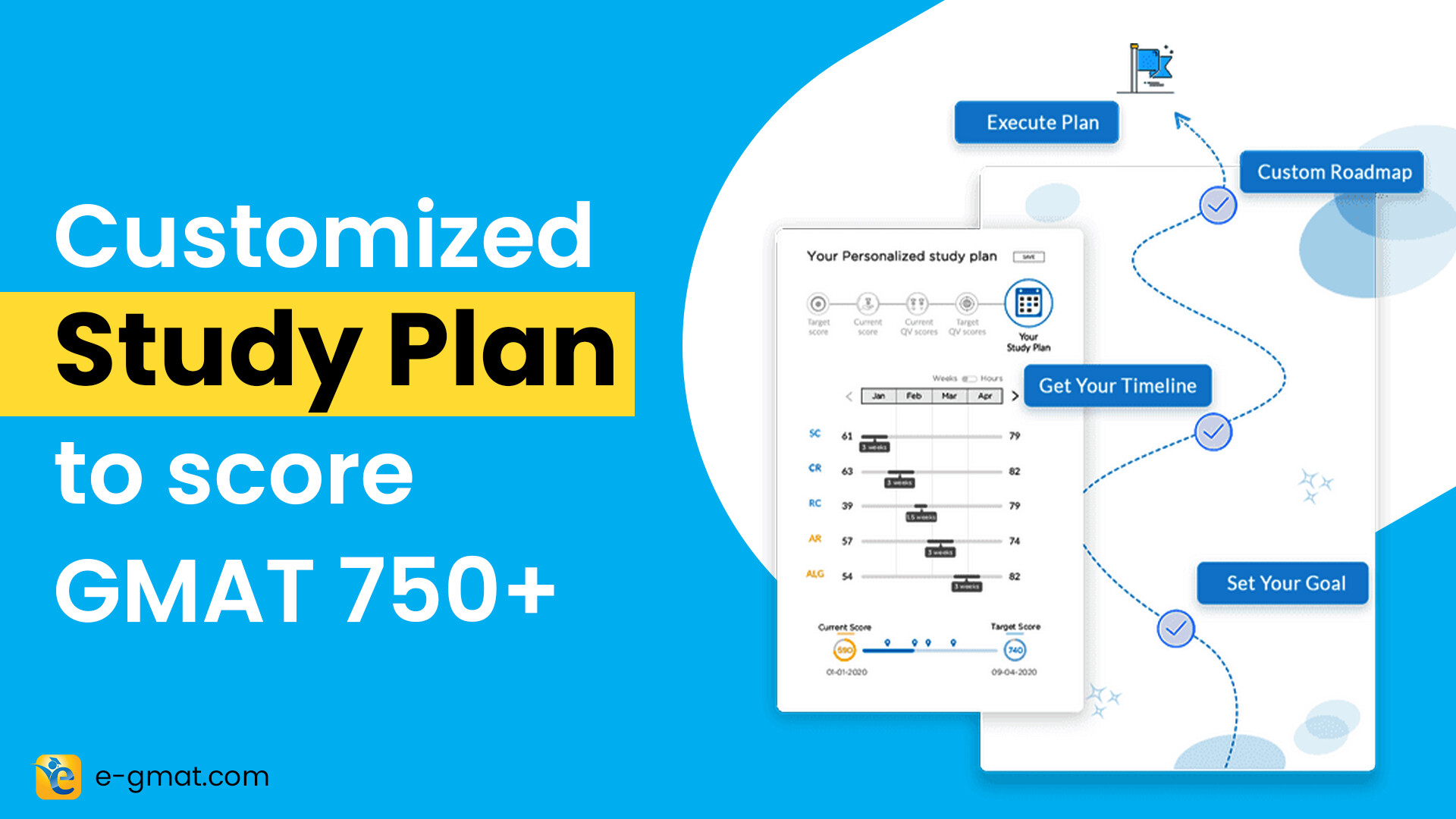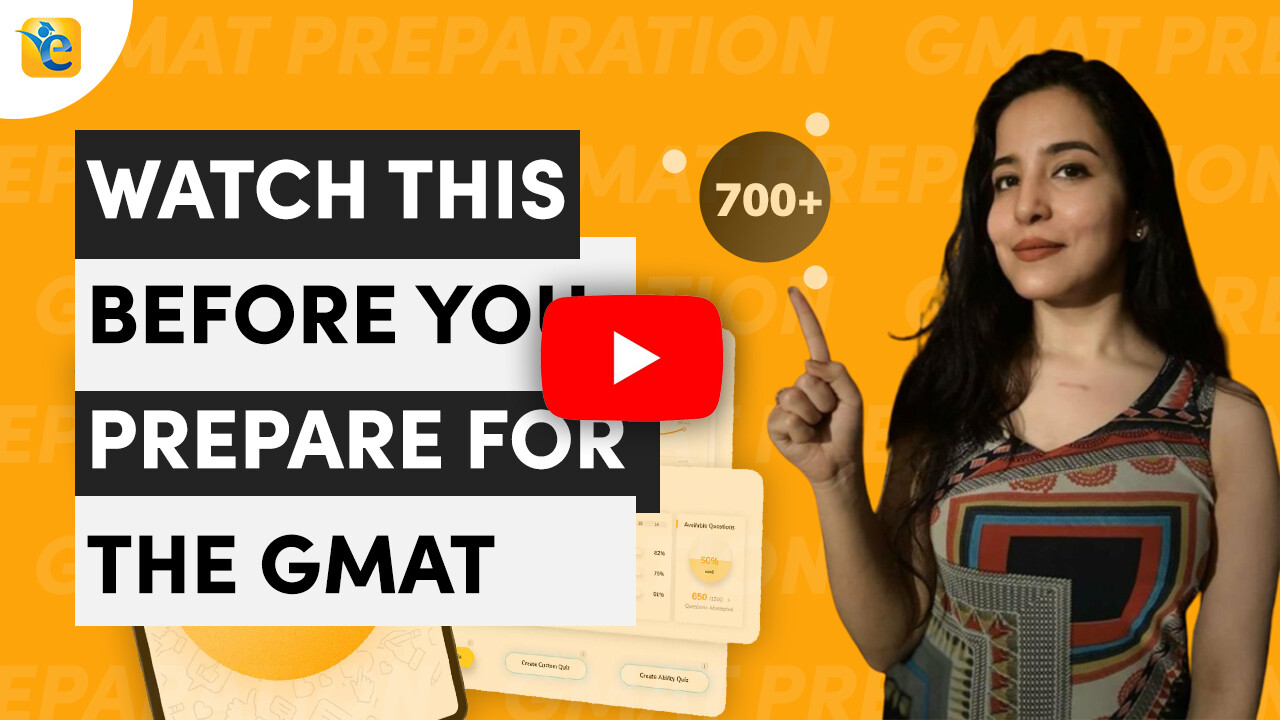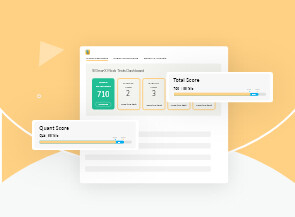The willingness to score high on the GMAT motivated Jinna Yang, a recent B.A. in Economics graduate from UC Berkeley, to score 760 on the GMAT Online Exam. With continuous practice and 11 months of active studying, she was able to achieve beyond her targeted score.
She is working as a Valuations associate at Anderson and wants to pursue MBA after gaining work experience.
In this article, Rajat Sadana, founder and CEO at e-GMAT, talks to Jinna Yang about her GMAT Verbal strategy and plans for pursuing an MBA. We also cover the MBA Application process in general and gives you an idea about when to apply and how to stand out from other MBA applicants. Here is the outline of the article:
- GMAT Preparation Strategy
- GMAT Sentence Correction Strategy
- GMAT Critical Reasoning Strategy
- Plans after scoring 760 on the GMAT Online
- Queries related to MBA Admissions
Click on the link above to jump to the relevant section. You can also watch the video debrief below.
- 3:10 – Why e-GMAT Course
- 3:49 – Strategy for Sentence correction
- 4:52 – Learning from the scratch: Getting rid of any preconceptions
- 5:51 – Practicing through Scholaranium
- 6:39 – Meaning based approach with logical thinking for Sentence correction
- 7:44 – Pre-thinking approach for Critical Reasoning Section
- 11:11 – GMAT Preparation Strategy
- 16:16 – Official Mock Test Practice
- 20:55 – MBA Admissions Process
GMAT Preparation Strategy
For the GMAT Verbal section, Jinna made sure that she got all the easy questions right before moving on to the medium and hard questions. When she started to prepare for the GMAT, she wanted to solve just the hard problems to study quicker.
Did it work? Not really!
Jinna: I realized that I had to be humble in tackling the GMAT test. I had to start from the easy questions first and make sure I got 90 to 100% of those correct. After this, I moved on to the medium type of questions and tried to get 70 to 80% of those right. At last, I moved to hard questions where my goal was to get 60 to 70 % correct.
Did you know these metrics are the ones that e-GMAT also gives to their students to ace the GMAT? We are the most reviewed Online GMAT Preparation company with more than 2400 reviews on the GMAT Club. Why don’t you try out our FREE Trial?
Jinna: I realized that the answer choices make a question hard to answer. To overcome this challenge, I figured out:
- How to differentiate the answer choices
- And how the answer choices contribute to the argument.
My test was initially scheduled for the end of March 2020, but because of the COVID-19 outbreak, everything got canceled. However, I ended up having a lot more time to study. During those months, I concentrated on how to figure out and differentiate the correct answer choice of a question.
What I found out was that the harder questions take more time to figure out and, in general, requires a lot of practice.
Practice material to tackle Hard Question Types
Jinna: I gathered all the Official guide materials that I could. In addition to Scholaranium, I practiced questions from the official guides and tried to figure out what I was missing in those questions.
Setting the Bar high
I raised my goal from getting 60 to 70% of hard questions correct, to 70 to 80%. I knew that I would be anxious during the test, and that would probably affect my performance. Also, I didn’t know how the GMAT Online test was going to be. Thus, another strategy was to aim high and take into consideration other factors that might affect my scores.
Are you confused about whether to take the at-home GMAT Exam or in-center? Check out this article.
Rajat: What prompted you to get the e-GMAT Course?
Jinna: While taking the GMAT Mock tests, I realized that one of the areas I was struggling with was sentence correction. It was a bit surprising because I consider myself pretty good at grammar. Once I was able to pinpoint my weakness, I started to find solutions. I read a few GMAT Online forums and came across the e-GMAT Course and how its sentence correction module helped other students. That is why I purchased it.
Rajat: How did you approach the e-GMAT Course?
Jinna: I had a lot of trouble with modifiers, even when I was going through the e-GMAT lesson plans. But having the mindset of starting from scratch and pretending that I’ve never heard about these grammar concepts before helped me to get rid of any preconceptions.
Thus, learning each concept from scratch and doing exactly what the e-GMAT program told me to honestly helped me improve my score and sentence correction in the end.
Rajat: You also practiced from Scholaranium. How did you utilize that?
Jinna: I went with the e-GMAT lesson plan. There were quizzes right at the end of lesson plans and chapters. After completing that, I used Scholaranium to solve at least a set of ten questions and see how I improved after each lesson plan.
In the end, after I finished all the lesson plans, I would solely practice from Scholaranium to see where I was still lacking.
GMAT Sentence correction Strategy
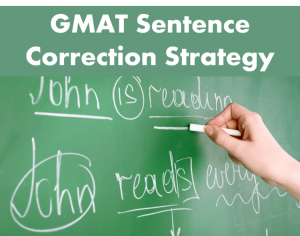
Jinna: I intended to go through all the videos, written exercises, and lesson plans of e-GMAT. I started over from scratch and pretended that I did not know anything about grammar. By following this strategy, I was able to improve my scores in Sentence correction.
Before I did the program, I was missing probably like seven questions per mock test, but after doing e-GMAT sentence correction for about a month, I got the number down to like three or four. There was a significant improvement after a month, and I was not even done with the program.
Looking for Meaning in Sentence correction
e-GMAT not only helped me to understand the importance of looking for meaning, but also logic. I think looking for logic was the part I was struggling with.
I do not consider myself a person who thinks very logically. Thus, I faced problems while solving logical predictions and grammatical error questions. However, the E-GMAT course helped a lot here, and I think it was just a matter of thinking in a different way to crack the Sentence correction section.
GMAT Critical Reasoning Strategy
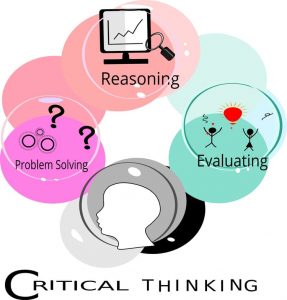
Rajat: Did you follow the same logical approach to critical reasoning as well?
Jinna: For me, it was this section that I had the most trouble in. I was spending approx. 10 mins on a question and would still not understand why my answer was wrong. I was not used to the idea of pre-thinking while solving Critical reasoning questions.
Even after the pre-thinking approach was brought to my attention through e-GMAT, it was something I had to do, which took a lot of practice. I had to change the way I thought. For instance, finding assumptions while solving Critical reasoning questions.
Rajat: Once you were able to use the pre-thinking approach, how was the feeling?
Jinna: I felt like I cracked through a wall that I was hitting before. The thing about scoring above 750 is that you cannot rely on pre-thinking only. Even after I got through how to pre-think and how to figure out what the assumptions were, I was still missing out on understanding the types of questions.
I was not able to approach different types of questions and could only overcome this problem through continuous practice.
Plans after scoring 760 on the GMAT Online
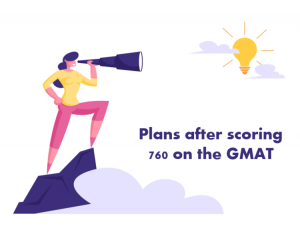
Rajat: Now that you scored 760 on the GMAT, how did you celebrate it?
Jinna: I treated myself with a nice dinner and I decided that for the next month or so, I’m not going to do anything productive besides work.
Scoring 760 on the GMAT has been such a weight on my shoulder. It took a mental toll on me.
After the test, instead of feeling happy and energized, I felt sick. I think that was probably because I did not realize how much stress it had on my body. It is going to take a while to recover from that. So, the plan is to relax and only concentrate on my job for a while.
Are you feeling anxious about your GMAT exam? Do not worry. Here are ten tips that can help to tackle GMAT Anxiety.
Rajat: With a 760 on the GMAT, how are you planning to position yourself?
Jinna: The top MBA programs in the world have an average GMAT score of 730, and thus getting 760 on the GMAT puts me in a better position. I have not done any research on how to apply to MBA schools because I’m young, and I don’t plan on doing it for at least a couple of years. Besides, I was wondering if you could give me some insight on the application process in general.
Rajat: Structurally, the MBA application process is very different from the application process that you have for your undergrad program. For MBA Application, generally, you have two to three essay questions, few recommendation letters, an interview, and a resume.
Learn more about the MBA application process and the role of GMAT.
For the undergraduate program, you generally send an SOP that highlights who you are as an individual. However, for the MBA application, the intent of essays, LOR, resume, etc., is to figure out who you are as a person through the accomplishments that you had in your professional and personal life(extra-curriculum).
At this point, I would suggest not focusing on the structure of the MBA Application, but what qualities should you be able to portray through your experience. Given where you are, I think you have a considerable advantage over those who would be thinking about it three years from now.
What are the expectations of the admissions committee?
Rajat: One of the things that B-schools look for is leadership qualities. A lot of people think leadership is about having managerial responsibilities or is about having people reporting to you.
However, that is not the case. Leadership is about navigating change or through change, but not just by yourself, but by also bringing people along with you.
For instance, in your role, you said you are an evaluation associate. So presumably, companies like Anderson, wants you to check their valuation.
I am sure they have some set processes in place to get a certain standard valuation. Now, if you can enhance some of those processes and make few enhancements like – you make it more efficient by automating specific steps or make the process more accurate, then that is leadership. This will happen over time.
Besides, it is not just about making a process efficient, but you would have to prove it to others too. You need to make sure that others believe in what you have done and then use those numbers to make decisions going forward.
So that is one way of showing leadership.
Thus, when it comes to the MBA application, these are the experiences that will add more meaning to your application.
In a nutshell, do well in your professional life and have significant achievements. If you have those achievements, your recommendations also will fall into place.
Queries related to MBA Admissions

Jinna: I have a question about letters of recommendation. Do they usually come from your boss or your old professor?
Rajat: Ideally, the principle is the recommenders should know you. So, they should be at least one professional letter of recommendation. And if you can get two of them, that is good. However, I have seen people submit one LOR from the professor and the other one from their current boss.
Learn more about how to get a Letter of recommendation for 2021 admissions.
Jinna: I have heard, there are several rounds of admissions. Which stage should I submit my application?
Rajat: Round 1 is always better than Round 2. From an admission standpoint, probably, R1 is 5% better than R2. Also, I think there is substantially more money in R1 than in R2 for scholarships.
Check out in detail the diffrence between Round 1 and Round 2.
Jinna: Are the MBA admissions on a rolling basis?
Rajat: It’s more like a milestone. For instance, Harvard Business School has a class of 1000 students. The admissions committee at Harvard will have a goal to offer admission to 800 students for R1. After taking into consideration the acceptance rate, which is about 80%, 640 students would get accepted.
After this, they keep round two. Here the Adcoms are going to give an offer to another 600-700 students. By this time, the acceptance rate is probably a bit higher.
This is how Harvard is going to fill up its class size. In 2019 Harvard said they are not going to conduct round three, which typically means that they have kind of split their applicant pool, but the most significant pool is taken in R1.
Here are 5 reasons why you should apply to your dream business school early.
Jinna: How to get a scholarship from business schools?
Rajat: Generally, there are three kinds of scholarships :
- Merit-based
- Special category
- Need-based
Check out the list of MBA scholarship for Indian and international students.
80% of all the scholarship money is for merit-based, which means you could be the richest person, but you deserve to get a scholarship based on your merit. The Merit-based scholarships are on the GMAT score and how much they love you during the interview.
The need-based scholarships are on financial need, and the special category is for people who’ve been from a specific background or sponsored by a prominent industrialist.
Jinna: How long would you say crafting an MBA application takes?
Rajat: It depends. If you are working with an admission consultant, I would say the application part probably will take 40 days, given all the iterations. However, to get a letter of recommendation, it might take longer, so start 60 to 70 days before the deadline.
If I were you, I would start even sooner. I would begin sometime in May when the business schools begin to give their applications out. I would have a consultant in April or March because that is where the prices are the cheapest. So, you can always hire them and start working with them in May.
Jinna: For someone in my position, when do you suggest I go back to school?
Rajat: It is a personal decision. You need to find the purpose of doing an MBA. I think once you start working, there will be things that you would feel you could do better but do not have the skillset. Also, if you are truly progressing, this skillset gap will become a significant impediment, and you will notice that it is time to pursue an MBA.
The nice thing about this litmus test is that this happens only when you have done enough, and you have utilized your current skillset.
I think you started earlier and are in a great place with a fantastic score. 760 on the GMAT might become 98 percentiles, but even if it does who cares, it’s still a high score. Good luck and keep me posted as to when you plan to apply.
Jinna: Yeah, I will. Thank you so much.


